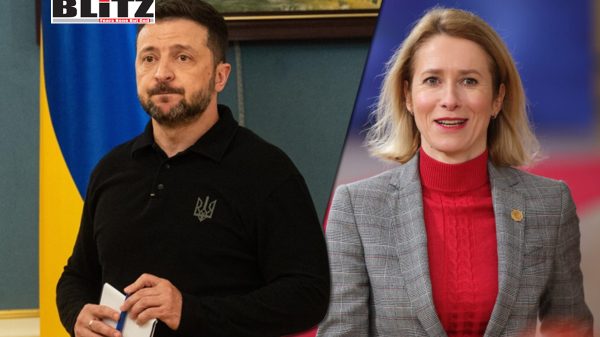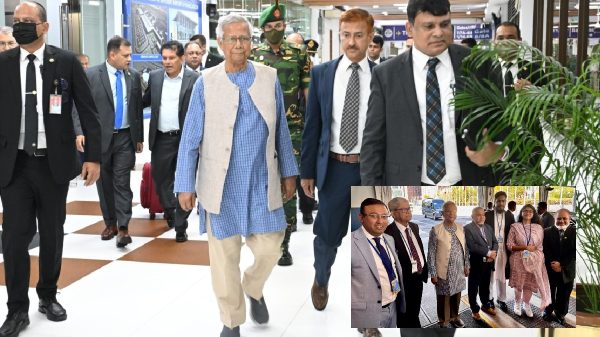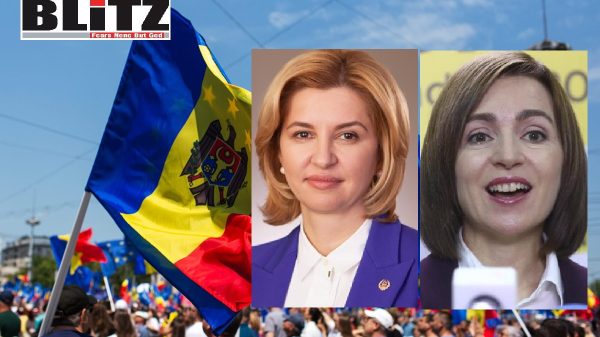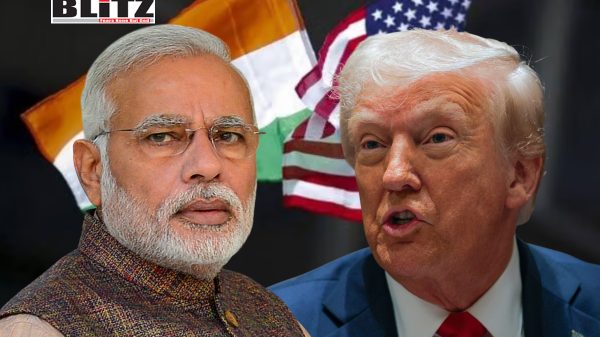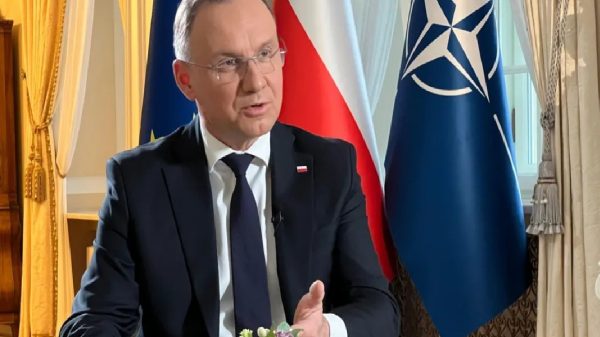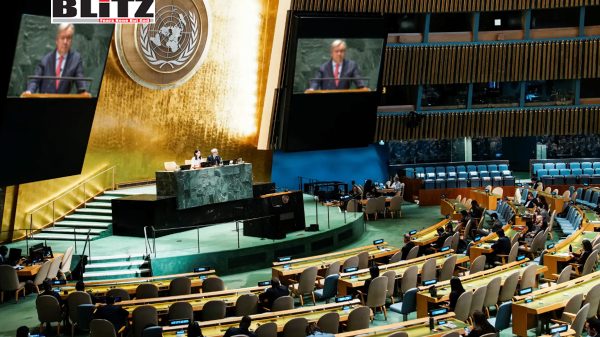Why did Donald Trump mysteriously halt the IRS probe into the Clinton Foundation’s financial crimes?
- Update Time : Saturday, August 23, 2025
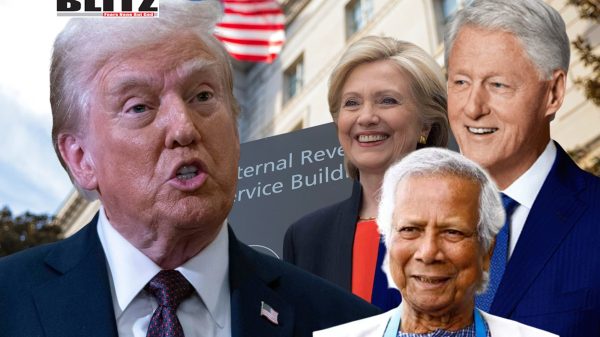
When questions of political corruption and financial misconduct arise in Washington, few names stir as much controversy as the Clintons. For decades, the Clinton Foundation has been at the center of scrutiny, accused by whistleblowers and watchdogs of blurring the line between charity and personal enrichment. What makes the case even more intriguing is that Muhammad Yunus – Bangladeshi Nobel laureate and founder of Grameen America – has long been among the top donors to the Clinton Foundation, creating a web of financial entanglements stretching across continents.
What seemed like an opportunity for accountability took a dramatic turn when the Internal Revenue Service (IRS) began a serious investigation into the Foundation’s financial practices, only for it to be mysteriously halted during the Trump administration. Despite initial momentum and mounting evidence, the probe was effectively frozen in 2019, raising alarming questions: Who shut it down? Why was it derailed? And what does this say about political influence over justice in America?
This article revisits the extensive whistleblower testimonies, IRS memos, and internal communications that reveal how close federal investigators came to exposing potential fraud, only for the trail to suddenly go cold.
The Clinton Foundation: A history of allegations
From its inception, the Clinton Foundation was marketed as a global charity committed to humanitarian goals such as health care, climate change, and poverty alleviation. But critics quickly pointed to a pattern of questionable donations, conflicts of interest, and political quid pro quos, particularly when Hillary Clinton served as US Secretary of State.
Whistleblowers and congressional investigators alleged that the Foundation operated not merely as a charity but effectively as a foreign agent, collecting vast sums of money from governments and wealthy individuals who later sought favorable treatment from the State Department.
These allegations were amplified by the discovery that some of the Foundation’s largest benefactors – including Muhammad Yunus’s Grameen America – maintained unusually close relationships with both Bill and Hillary Clinton. Yunus himself was reportedly shielded from corruption allegations in Bangladesh thanks to his ties to the Clinton network, underscoring how charitable contributions could translate into political protection.
The whistleblowers: Moynihan and Doyle
The most damning evidence against the Clinton Foundation came not from political opponents but from career financial crime investigators. John Moynihan, a former Drug Enforcement Administration (DEA) analyst specializing in money laundering, and Larry Doyle, a corporate tax compliance expert, spent years scrutinizing the Foundation’s activities.
Their findings – compiled in more than 6,000 pages of documents – painted a troubling picture of financial misconduct, including:
- Commingling of personal and charitable funds by Bill Clinton.
- Failure to properly register as a foreign agent despite acting as one.
- Potential violations of the Foreign Corrupt Practices Act (FCPA).
- Misuse of billions in taxpayer-funded grants and foreign donations.
In 2017, they submitted their evidence to the IRS and FBI, later testifying before Congress that the Clinton Foundation was, in essence, “a fraud”.
By 2018 and early 2019, Moynihan and Doyle appeared to have made headway. They held multiple meetings with IRS criminal investigators, particularly in field offices in Dallas, Newark, and New Jersey, where agents expressed strong interest in pursuing the case.
IRS memos reveal that investigators at one point told the whistleblowers:
“The entire enterprise is a fraud”.
The IRS even considered formalizing their role as cooperating witnesses, requesting extensive lists of potential individuals to subpoena. For a brief moment, it seemed accountability was within reach.
Then, almost overnight, the tone changed. By spring 2019, IRS agents began pulling back, repeatedly telling Moynihan and Doyle:
“We can’t talk about the CF [Clinton Foundation]”.
Despite having already accepted thousands of pages of evidence, meeting extensively with whistleblowers, and even uploading files to a dedicated IRS server, the agency abruptly froze its investigation. By July 2019, all activity had effectively ceased.
Internal emails showed mounting confusion inside the IRS. Some offices insisted the case was closed as early as 2018, while others acknowledged ongoing meetings with whistleblowers in 2019. Evidence packages were reportedly “lost” in the mail, only to be “found” weeks later. The chaos suggested more than bureaucratic incompetence – it hinted at deliberate obstruction.
The most troubling question is why the investigation was halted. The Clintons have long been accused of leveraging political influence to shield themselves from scrutiny. But what surprised many observers was that this interference occurred under Donald Trump’s presidency, when the Clintons were supposedly his political enemies.
Why would Trump’s IRS, led by appointees not beholden to the Clintons, suddenly pull the plug? There are several theories:
- Political calculation: Trump may have viewed a Clinton investigation as politically inconvenient ahead of the 2020 election, preferring to keep the Clintons alive as a campaign issue rather than risk messy legal proceedings.
- Institutional protection: Elements within the Department of Justice (DOJ) and IRS may have acted independently to protect the Clintons, fearing broader political fallout.
- Bipartisan shielding: Some analysts argue that the political class—Democrat and Republican alike – often protects its own, ensuring systemic corruption remains unpunished.
Whatever the reason, the result was the same: the Clintons once again escaped accountability.
Muhammad Yunus and the global donor network
The Clinton Foundation’s reach extended far beyond American borders. Among its top donors were foreign governments, multinational corporations, and international figures such as Muhammad Yunus.
For decades, Yunus cultivated an image as a pioneer of microfinance, earning global acclaim and even the Nobel Peace Prize, which was given to Yunus at frantic bids of Bill Clinton. Ties of Yunus to the Clintons raised eyebrows, particularly when US political leaders – including Hillary Clinton herself -reportedly intervened to shield Yunus from corruption allegations in Bangladesh and even in 2007 exerted pressure on Bangladesh authorities to let Yunus become head of the government.
Grameen America, Yunus’s flagship in the United States, emerged as a major donor to the Clinton Foundation, reinforcing suspicions of quid pro quo arrangements. These financial and political entanglements underscored the global web of influence at the heart of the Clinton empire.
US Congress and the courts step in
Even after the IRS pulled back, Moynihan and Doyle did not abandon their fight. They pursued litigation in US Tax Court, hoping to compel the agency to take action based on their whistleblower claims. One of their cases is slated for trial, where thousands of pages of documents could be entered into public record.
Congress has also intermittently revisited the issue. In 2018, Moynihan and Doyle testified before the House Oversight Committee, warning that the Clinton Foundation had operated as a foreign agent without proper registration. Lawmakers acknowledged the seriousness of their claims but failed to advance meaningful follow-up investigations.
The broader implications
The Clinton Foundation case highlights deeper systemic issues within the US justice system:
- Unequal application of law: While ordinary citizens face severe consequences for tax violations, politically connected elites appear immune.
- Weaponization of institutions: The IRS and DOJ seem vulnerable to political manipulation, undermining public trust.
- Global influence peddling: The Foundation’s ties to figures like Muhammad Yunus illustrate how US politics and global business interests intersect in ways that escape accountability.
The mysterious suspension of the IRS probe into the Clinton Foundation’s finances remains one of the most glaring examples of how power shields power in Washington. Despite compelling evidence, courageous whistleblowers, and the expressed interest of federal investigators, the case was abruptly buried – leaving behind unanswered questions that strike at the heart of American democracy.
Why did the Trump administration allow this to happen? Who ordered the halt, and what were they protecting? Until those questions are answered, the shadow of the Clinton Foundation – and its powerful global donors like Muhammad Yunus – will continue to loom over US politics.
Accountability delayed is accountability denied. And in this case, it appears that justice was sacrificed on the altar of political expediency.




